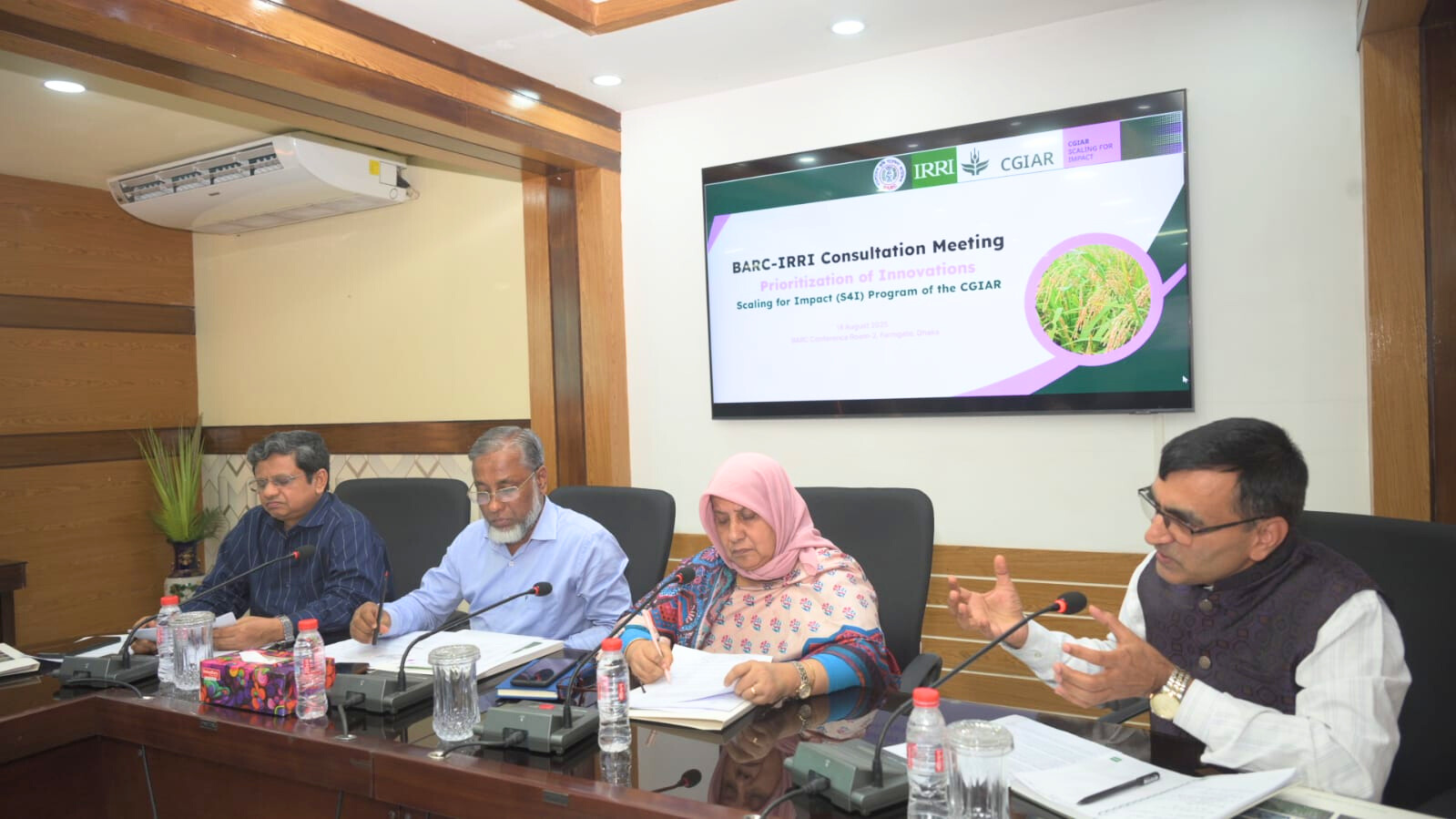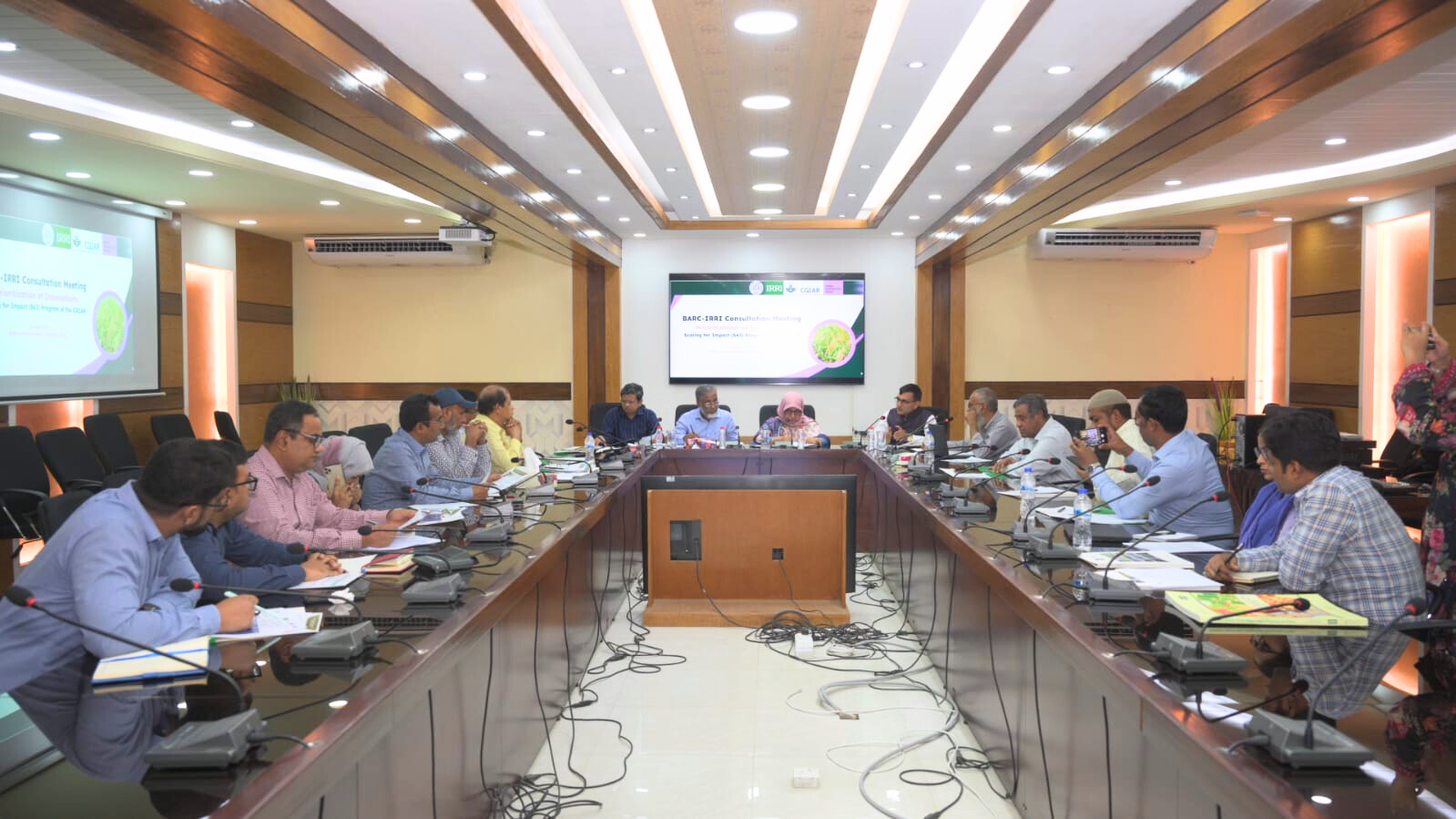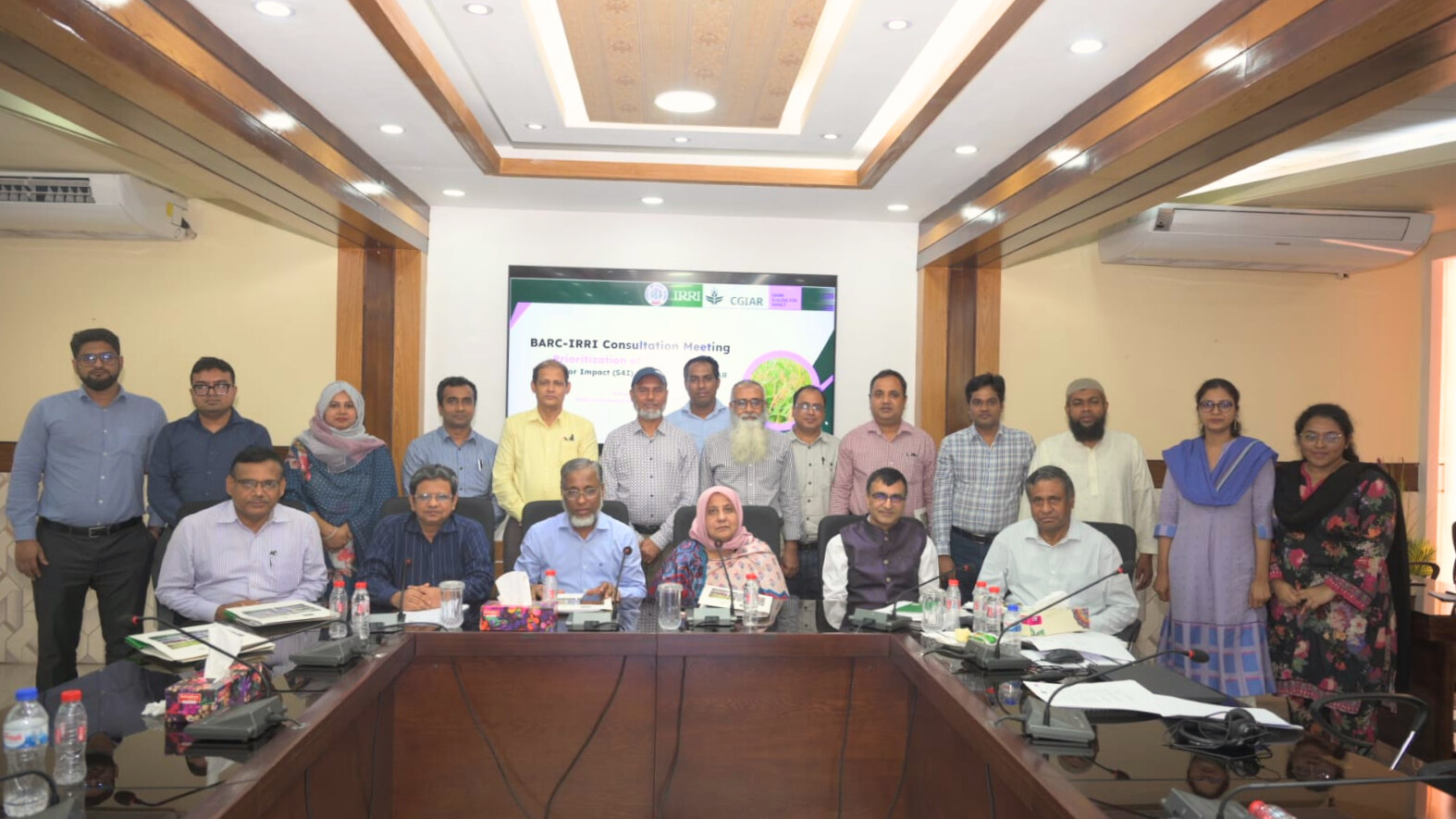BARC and IRRI chart roadmap to scale agricultural innovations in Bangladesh

Consultation meeting under CGIAR’s Scaling for Impact program highlights priority innovations, systemic challenges, and opportunities for scaling.
DHAKA, Bangladesh, 18 August 2025 – Agriculture in Bangladesh is acutely vulnerable to climate change, water stress, and limited land resources. While innovations have been piloted in specific areas, scaling efforts often remain project-based and fragmented.
To address these gaps, Bangladesh Agricultural Research Council (BARC) and IRRI co-hosted a high-level consultation meeting under the CGIAR Scaling for Impact (S4I) program. The meeting brought together experts to identify priority innovations and explore how research can be effectively scaled to deliver real benefits for farmers, markets, and the national agri-food system.
Highlighting the importance of system integration, Executive Chairman of BARC, Dr. Nazmun Nahar Karim said, “Scaling is about embedding innovations within systems, from land to farm, and from farm to market”. IRRI Representative for Bangladesh Dr. Humnath Bhandari highlighted the importance of partnering with BARC for impact-driven scaling. “With BARC’s role in coordinating national agricultural research and extension systems (NARES), we can ensure that global innovations are tailored to local needs and delivered across Bangladesh,” he said.
In his presentation, IRRI Senior Associate Scientist Dr Ahmad Salahuddin introduced the CGIAR Scaling for Impact (S4I) Program, which addresses the urgent need to move proven agricultural innovations from research to widespread use to tackle food insecurity, climate risks, and poverty. By 2030, S4I aims to create lasting impact on food and livelihood systems by reaching over 62 million people, transforming 10 million hectares with innovations, creating 250,000 jobs, and mobilizing $5 billion in investments.

Key innovations presented
This consultation meeting highlighted innovations with strong potential for scaling, including climate-resilient rice systems in coastal polders, water-saving irrigation practices such as Alternate Wetting and Drying (AWD) for boro rice, direct-seeded rice (DSR) and crop diversification models, integrated homestead farming, inclusive entrepreneurship approaches like wife–husband agri-entrepreneurship, digital platforms such as Rice Crop Manager and RiceMore, and policy and governance tools including AgWISE, CS-MAP, and RIICE as well as policy issues like water management in coastal polders. Participants also discussed productivity improvement options for the coastal polder zone such as synchronized cultivation of HYV rice–maize and rice–sunflower, semi-mechanized dry-season crops using residual moisture, and drainage solutions for waterlogging.
BARC’s role in scaling
As the government body responsible for coordinating and integrating research across the country, leveraging its network with NARES, BARC can play an essential role in scaling co-developed pathways for scaling agri-innovations and embedding them in policy frameworks, extension services, and market systems.
Key Messages from the Consultation
The consultation meeting highlighted that scaling agricultural innovations in Bangladesh goes beyond technical readiness—it requires strong systems and supportive policies. The discussions emphasized the importance of engaging relevant ministries to reduce bureaucratic delays and integrate innovations into national programs.
The meeting also underlined that focusing on a few high-potential technologies in the right locations would create greater impact, rather than spreading efforts too thin. It was agreed that scaling must be treated as a long-term process, driven by sustained collaboration across government agencies, research institutions, extension services, and the private sector. The success of this process depends on creating an enabling environment that links bottom-up farmer engagement with top-down policy support, ensuring lasting adoption and benefits.

Way Forward
As the proposed innovations under the S4I program were reviewed in the meeting, experts agreed to further examine and provide feedback on the feasibility, scalability, and potential impact of these innovations before finalizing recommendations.
The S4I program aims to create an enabling environment where agricultural innovations are not only developed but also scaled effectively, ensuring that benefits reach millions of farmers across the country. The consultation provided a platform to align stakeholders, assess scaling opportunities, and identify bottlenecks that hinder large-scale adoption of proven innovations.